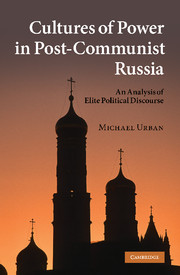2 - Social relations
Published online by Cambridge University Press: 07 September 2010
Summary
The level of trust that we have today is at the level of the plinth. No one trusts anyone (C7).
Most attempts by Western scholars to conceptualize social relations in post-communist countries have fallen under the rubric “civil society.” In their interpretation, civil society would represent primarily, if not exclusively, the sphere of voluntary associations thought to bridge the gap between citizens and state. In this version of the concept, the involvement of citizens in society's associational life is valued for breeding the habits and skills of cooperation necessary for common endeavors. In so doing, participation in voluntary associations, it is claimed, produces a generalized “social capital” consisting of high levels of interpersonal trust and tolerance that lubricates the engine of social cooperation and contributes thereby to citizen participation in democratic government (Diamond, 1994).
Perhaps taking their cue from opponents of communist regimes who had boldly inscribed “civil society” on their banners, many of those with an interest in studying – and, perhaps, even assisting in the building of – democracy in the newly liberated states have relied on this conception of civil society to chart the progress of individual states toward democratic futures. The results of these efforts have been disappointing. On the one hand, civil society conceived in this fashion can scarcely be said to exist in post-communist countries, which stand out for recording the lowest levels of citizen participation in voluntary associations among all countries on the globe (Howard, 2003; Hann, 2002).
- Type
- Chapter
- Information
- Cultures of Power in Post-Communist RussiaAn Analysis of Elite Political Discourse, pp. 34 - 68Publisher: Cambridge University PressPrint publication year: 2010
- 1
- Cited by



